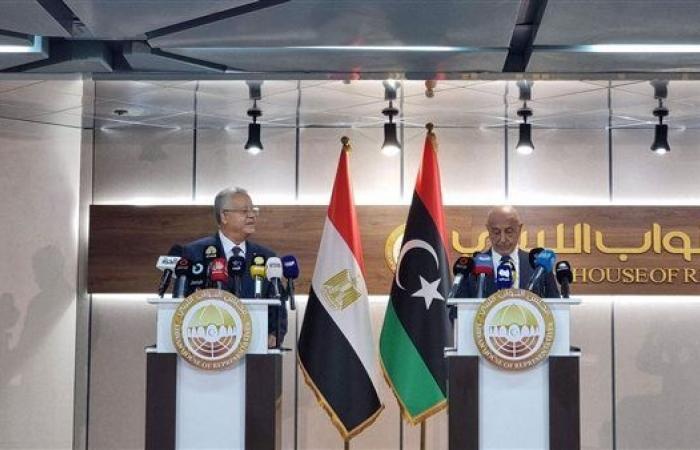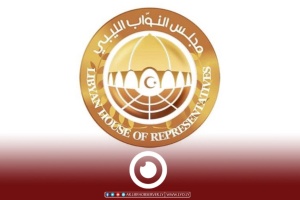The Egyptian Parliament Speaker Hanafy El-Gebali called on the House of Representatives (HoR) and the High Council of State (HCS) to continue their role to fulfill the necessary frameworks for holding presidential and parliamentary elections in Libya in order to achieve the aspirations of the people, within the framework of Skhirat Agreement of 2015.
El-Gebali arrived in Benghazi on Monday and was accompanied by a parliamentary delegation. He was received at Benina Airport by the HoR Speaker Aqila Saleh, and the head of the government designated by the HoR, Osama Hammad.
El-Gebali urged all parties involved in the Libyan crisis to give priority to the Libyan national interest, and to support efforts to complete national institutions in order to achieve the goal of restoring stability and putting the country on the track of development and construction, according to a speech he delivered at the HoR session in Benghazi.
He indicated that Cairo hosted the meetings of the constitutional track, "which ended in a consensus between Saleh and HCS Head Khalid Al-Mishri on the constitutional basis." He added that they agreed on the constitutional basis, which represented a starting point toward building Libyan institutions.
"The consensus was welcomed by all parties and international partners, then we witnessed a number of steps that followed this consensus through the formation of the 6+6 committee for preparing electoral laws to hold the vote." El-Gebali added, saying to the HoR members: "We came to you today to express our sincere support for you in leading the Libyan-Libyan dialogue, as the elected authority of the people."
El-Gebali reaffirmed Egypt's support for the sovereignty, stability and unity of Libya and the path of a political solution to the Libyan crisis based on firm principles, saying: "It is the right of Libyans to preserve their national identity and territorial integrity, away from ideology or tribalism that pushes for division."
He stressed the importance of the Libyan ownership of the political process, which aims to restore security and the unity of the country by holding elections as soon as possible and rejecting external interference that targets the wealth and capabilities of the Libyan people or making Libya a point where threats are launched toward neighboring countries.








